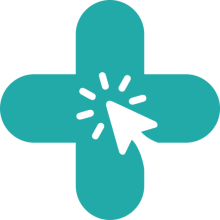Published - Thu, 01 Sep 2022

Hereditary hemochromatosis – Prevention Types & Diet
Hereditary hemochromatosis disease is an autosomal
recessive disorder that causes the buildup of too much iron in the body. The person
inherits one HFE gene from each of the parents.
If you've got a hereditary
iron-storage disease, then there is a danger of developing very high iron
levels.
Many folks with the hereditary
iron-storage disease don’t understand they need immediate treatment. Early
symptoms of an iron-storage disease like feeling tired or weak, are very common
and may be confused with other diseases. Men with the hereditary iron-storage
disease are prone to develop complications and that too at an earlier age. It
is found that about 1 in 10 men with the hereditary iron-storage disease can
develop severe disease. However, most people with the hereditary iron-storage
disease never develop symptoms or complications.
How are you able to stop
complications from hemochromatosis?
If you or your members of
the family have iron-storage disease, your doctor might recommend ways to lower
the levels of iron in your body. The sooner iron-storage disease is diagnosed,
the less seemingly you're to develop serious complications—many of which may
cause permanent issues. If you're diagnosed with an iron-storage disease,
frequent regular blood removal is the only way to lower the levels of iron in
your body. Your doctor can also recommend
o
Annual
blood tests to ascertain your iron levels;
o
Liver
diagnostic test to ascertain for cirrhosis;
o
Iron
chelation therapy, if you can't have blood removed. This involves medication
taken either orally or injected to lower the levels of iron in your body;
o
Dietary
changes, like avoiding multivitamins, ascorbic acid supplements, and iron
supplements, which may increase iron in your body;
o
No
alcohol use (because alcohol will increase the danger of liver damage);
o
Steps
to forestall infections such as
o
Not
eating raw fish and shellfish
o
Staying
up to date on vaccinations, especially hepatitis B.
There are four kinds of hereditary iron-storage disease, that are classified based on the age of onset and factors like genetic cause and mode of inheritance.
|
Types |
Age of Onset |
Description |
|
Type 1 |
Adulthood
|
Men [40-60 yrs of age] Women [After menopause] |
|
Type 2 |
Childhood |
By 20 yrs of age absent
secretion of sex hormones delayed puberty
/shortage of sex hormones in males
|
|
Type 3 |
Intermediate between
types 1 and 2 |
Beginning before age 30 |
|
Type 4 |
Adulthood |
|
Few changes need to be
done to diet:
1. Fruits and vegetables
Green leafy vegetables and
brightly colored fruits are jam-packed with antioxidants. Though spinach is
understood for its iron content, it contains oxalates that impair non-heme iron
absorption. Alternative other sources of oxalates embrace kale, rhubarb, and
strawberries.
Berries, plums, sweet cherries, apples, artichokes, chicory, and red onions contain polyphones that are shown to inhibit haematin iron absorption. Moreover, fruit and vegetables contain non-heme iron, which isn't absorbed well.
2. Lean Protein
Lean proteins like chicken, white-meat turkey, cod, mackerel, and salmon have low iron content than meat.
3. Legumes, grains, nuts,
seeds, and beans
Whole grains, legumes,
seeds, and beans, contain phytates or phytic acid, which may decrease the
absorption of iron. They’re additionally high in fiber which impairs the
absorption of non-heme iron.
4. Eggs
Phosvitin, a protein in eggs, binds to iron and helps limit the amount of iron absorbed by the body.
5. Tea
Tea drinkers consume a
chemical compound known as tannins, which is normally found in tea. As per one
study, tea consumption might impair iron bioavailability.
6. Dairy foods
Dairy foods like milk,
cheese, and yoghurt square measure poor sources of iron.
Plus, they'll decrease the iron absorption in pills and foods taken at an
equivalent time.
Created by
Rigomo Team
Rigomo is a leading online education platform that offers a wide range of courses to help individuals enhance their skills and achieve their career goals. With our user-friendly interface and expert instructors, we strive to provide high-quality education to everyone, anytime and anywhere. Join us today and take the first step towards a brighter future.
Rigomo is an e-learning platform that was founded in 2019 by a team of dedicated professionals with a passion for revolutionizing the way people learn. The platform offers a range of online courses that cover various industries, including business, technology, healthcare, and more.
Rigomo's courses are designed to be interactive and engaging, with a focus on practical skills that learners can apply in their careers. The platform uses a combination of video lectures, quizzes, and hands-on projects to help learners master the subject matter.
Rigomo is committed to providing affordable and accessible education to people around the world. The platform offers a range of pricing options, including monthly and annual subscriptions, as well as pay-as-you-go options for individual courses.
Since its launch, Rigomo has received numerous accolades for its innovative approach to e-learning. The platform has helped thousands of learners across the globe acquire new skills and advance their careers.
As Rigomo continues to grow, the team remains committed to providing high-quality education that is accessible to all. The platform is constantly updating its courses and features to ensure that learners have access to the latest tools and technologies.
Comments (0)
Search
Popular categories
Health and Wellness
231Skill Development
7Technology
5Community Impact
2Success story
2Creativity
1Latest blogs

DeepSchool: The Story of an Idea That Refused to Sit Still
Tue, 02 Dec 2025

Transforming Emergency Care: The Story Behind Rigomo's Revolutionary PPMMP Course
Sun, 12 May 2024

Empowering Rural Healthcare: How Pogiko's AI is Bridging the Gap in Medical Services
Thu, 25 Apr 2024

Write a public review